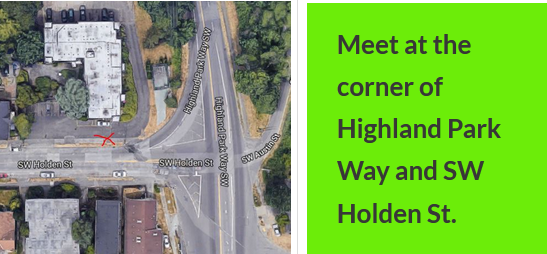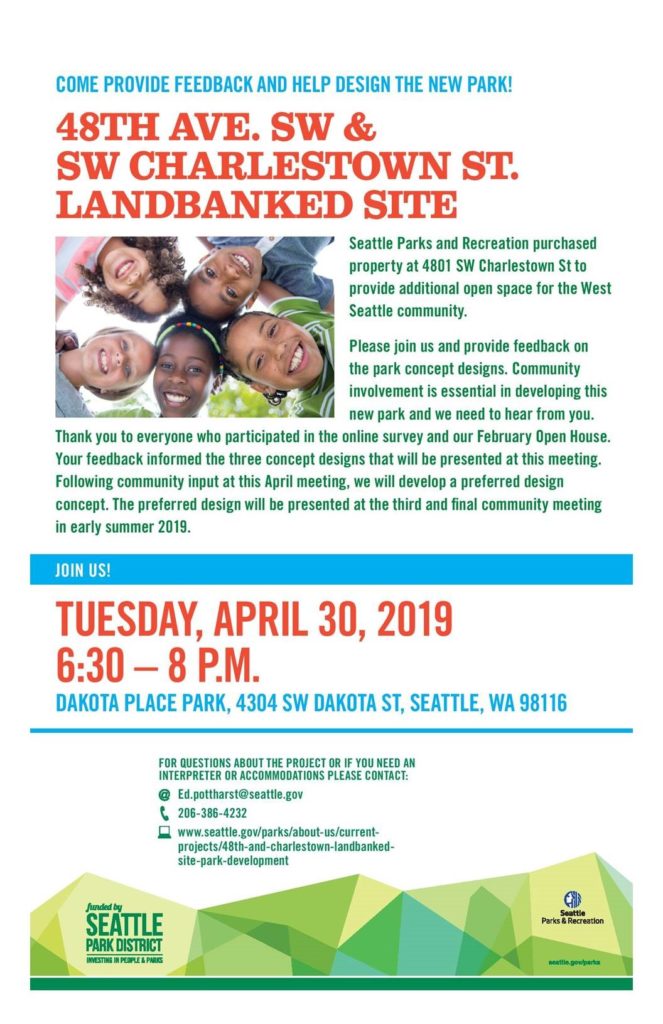Community Service Officers
The Mayor and Chief of Police announced the relaunch of the Community Service Officer (CSO) program initiated by the City Council in the 2016 budget.
Bringing back Community Service Officers will be a valuable addition to policing in Seattle, especially in the Southwest Precinct, where a top community concern is that the number of police officers are not sufficient to meet the staffing needs to adequately address public safety. I have long been a champion of the CSO program. I was proud to co-sponsor legislation to bring back CSOs in 2016. These unsworn officers can prioritize non-emergency services associated with law enforcement, freeing up police officers to better respond to 911 calls. Given the challenges Seattle and other large cities face in hiring new officers, 80% of large cities in the US are not meeting their recruitment goals, bringing back the CSO program is an important step.
The CSO program existed for 33 years until 2004, when it was eliminated due to budget cuts.
CSOs are non-commissioned officers who are trained to work as liaison personnel with the community and the Police Department, and support community-oriented policing.
CSOs will assist with mediating disputes, follow up on calls for non-emergency services, help residents navigate services, support programming for at-risk youth, and attend school and community-hosted events. Some of the work will involve assisting homeless persons and individuals struggling with substance abuse to access programs like diversion opportunities, housing, and behavioral health services.
As noted in the press release, “SPD seeks to fill the open CSO positions with individuals from demographic groups currently underrepresented in the Police department, including elders, immigrants, and individuals with past involvement in the criminal justice system.”
Here’s a link to SPD’s Program Development Report, and Community Engagement Report.
10 CSOs, and two supervisors will be hired.
Seattle Office for Civil Rights (SOCR) Interim Director Lockhart Confirmation Hearing #2
Interim SOCR Director Lockhart joined us in the Civil Rights, Utilities, Economic Development, and Arts Committee on April 9, as well as this past Tuesday, for confirmation hearings for permanent tenure as the Director with the SOCR. These hearings gave Director Lockhart an opportunity to expand on her responses to a series of questions covering a breadth of important topics; advancing anti-racist culture within City institutions; adopting alternatives to enforcement for people who submit civil rights and discrimination violations; and working to support staff in a resource-tight environment.
Director Lockhart has been at the helm of the department as an Interim Mayoral appointment since January 2018. SOCR is vital resource for our City in implementing new anti-discrimination policies like my own Fair Chance Housing and Source of Income Anti-Discrimination laws; facilitating our nationally-regarded Race and Social Justice Initiative; and investigating issues of discrimination throughout Seattle. With such an important body of work, strong leadership and commitment to social justice is fundamental for this position. I sincerely respect Director Lockhart’s contributions during her interim tenure.
This confirmation effort has allowed us put to work new provisions that amended the SOCR appointment process to better involve SOCR staff, the Seattle Women’s Commission, the Seattle Human Rights Commission, the Seattle LGBTQ Commission, and the Seattle Commission for People with Disabilities. In concert with this confirmation process, SOCR has been engaged in exploring different structures of independence for the office, and upon the submission of recommendations of this study in May, Director Mariko has acknowledges that she will necessarily have a role in implementing those recommendations if the Council decides to enact them.
Full Council will be considering Director Lockhart’s confirmation on Monday, April 29.
Capital Project Oversight Reports
Work on improved capital project oversight began in 2016 when Councilmember Johnson and I called for additional oversight of city capital projects. The Council subsequently passed Resolution 31720, to “institute new rigor in capital project oversight that will increase appropriate and timely oversight and provide more transparency to the public,” through, among other things, “[e]nhanced regular CIP reporting developed in conjunction with the City Budget Office, including but not limited to quarterly reports to the Budget Committee on project scope, schedule, or budget deviations.” I later, in 2018, proposed legislation stating the Council’s expectations for the contents of the oversight reports that are a part of the new approach.
This first report is for the 4th quarter of 2018, based on a trial list of projects. This year I sponsored legislation to establish the 2019 Watch List for expensive, complex high-profile projects for which quarterly updates are required. The first quarter 2019 report is expected later in May, and will include additional projects, such as the Center City Streetcar, and South Park Stormwater Program.
The purpose of the Watch List is to identify problems with expensive projects early on, to allow for corrective action. On projects from previous years like the Seawall and Combined Utilities billing system, the Council found out about cost increases late in the project cycle.
The principal risk factors used to rate projects are Budget, Scope, Schedule, Coordination, Community Impact, and Political. Departments rate the risk on a scale of 1 (low) to 3 (high). A green light rating means all areas are ranked “1”. Yellow means that two or more elements are ranked “2”. Red indicates at least one element is rated “3”, or all risk elements are ranked “2.” The Reader’s Guide has additional information about the report format.
The 2018 4th quarter Watchlist report has the individual reports for 12 projects identified in the 2018 trial list.
I requested that future reports include additional detail be included about which specific risk factors are triggering the particular yellow or red ratings; some individual reports note this, but not all.
The Watch List report notes potential problems, but also potential successes. The South Lander Street Grade Separation bridge project has a current projection of $102 million in spending for a project budget of $125 million (though it notes a schedule challenge of working with railroads). One project with a current 4th quarter “red” rating is the Denny Substation Development, regarding the current project stage of closeout.
A separate document the Council requested for this program is reporting for Ongoing Programs, such as street paving, seismic work on bridges, and pedestrian and bike master plan implementation.
This too shows a clear success: the Pedestrian Master Plan School Safety line item had 28 projects planned for 2018, with a budget of $5.1 million. Instead SDOT completed 41 projects, 68% more projects, including flashing beacons, walkway improvements, curb ramps, and speed humps. On the other hand, implementation of paving, the Bike Master Plan, and new sidewalks are behind schedule.
As noted in the Council’s resolution setting the expectations for reporting, the 1st Quarter 2019 report is expected eight weeks after the end of the quarter, in late May.
Thanks to the City Budget Office and city departments for their work on these reports, and to Councilmember Bagshaw for hearing this report in the Finance and Neighborhoods Committee she chairs.
Highland Park Neighborhood Cleanup, Saturday May 4th
On Saturday, May 4th, the Highland Park Action Committee will be hosting a Neighborhood Cleanup from 10 to noon.
The focus will be on trash along Highland Park Way SW. The cleanup begins at the corner of Highland Park Way SW and SW Holden Street. Trash bags and grabbers will be provided; please bring work gloves if you have them. Refreshments will be provided. They’re also encouraging neighbors to host block and traffic circle clean ups from noon-2.


48th and Charlestown Park Development
The Department of Parks and Recreation is seeking community feedback on the design of the land banked site at 4801 SW Charlestown St. Join your neighbors on Tuesday, April 30th between 6:30pm and 8pm at Dakota Place Park, 4304 SW Dakota St to give you input.


